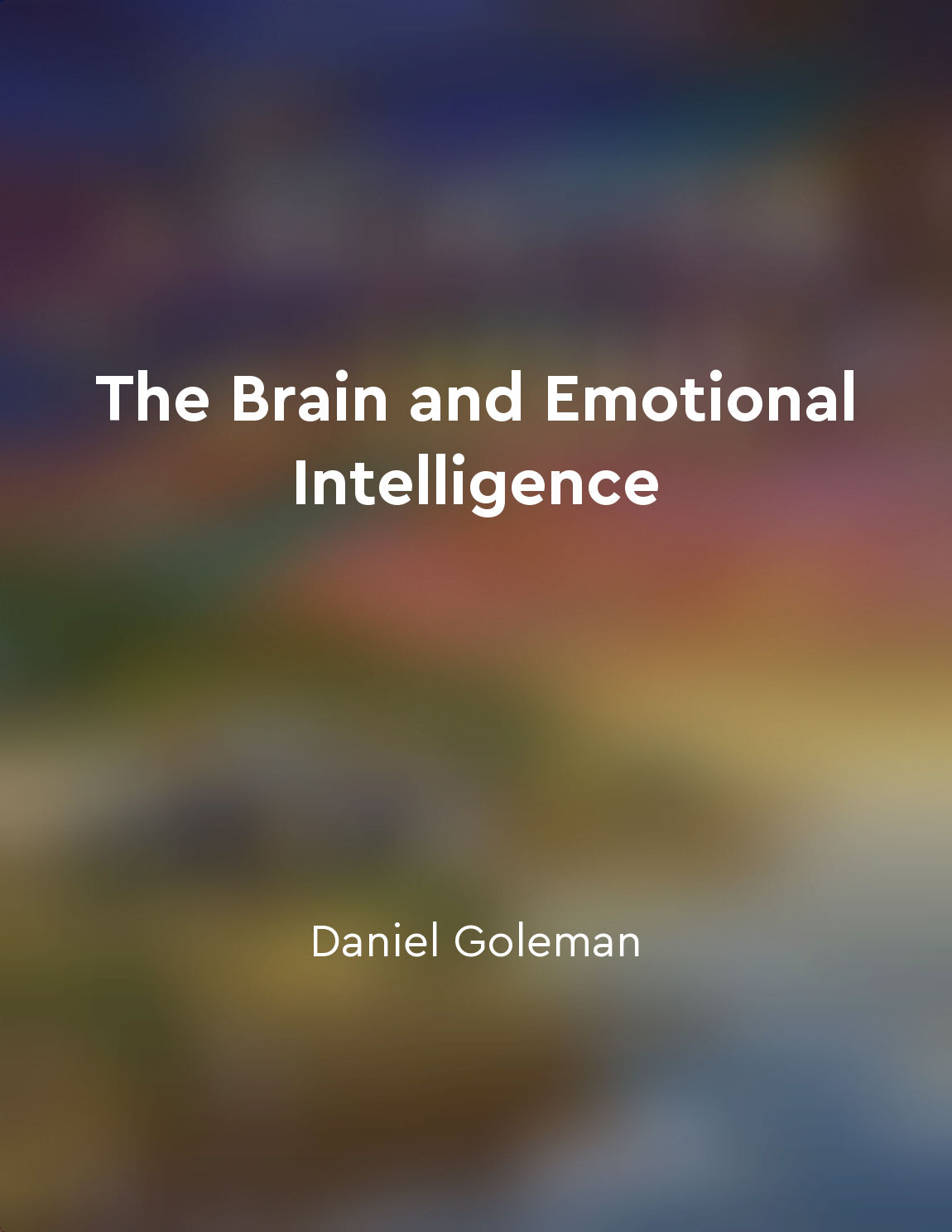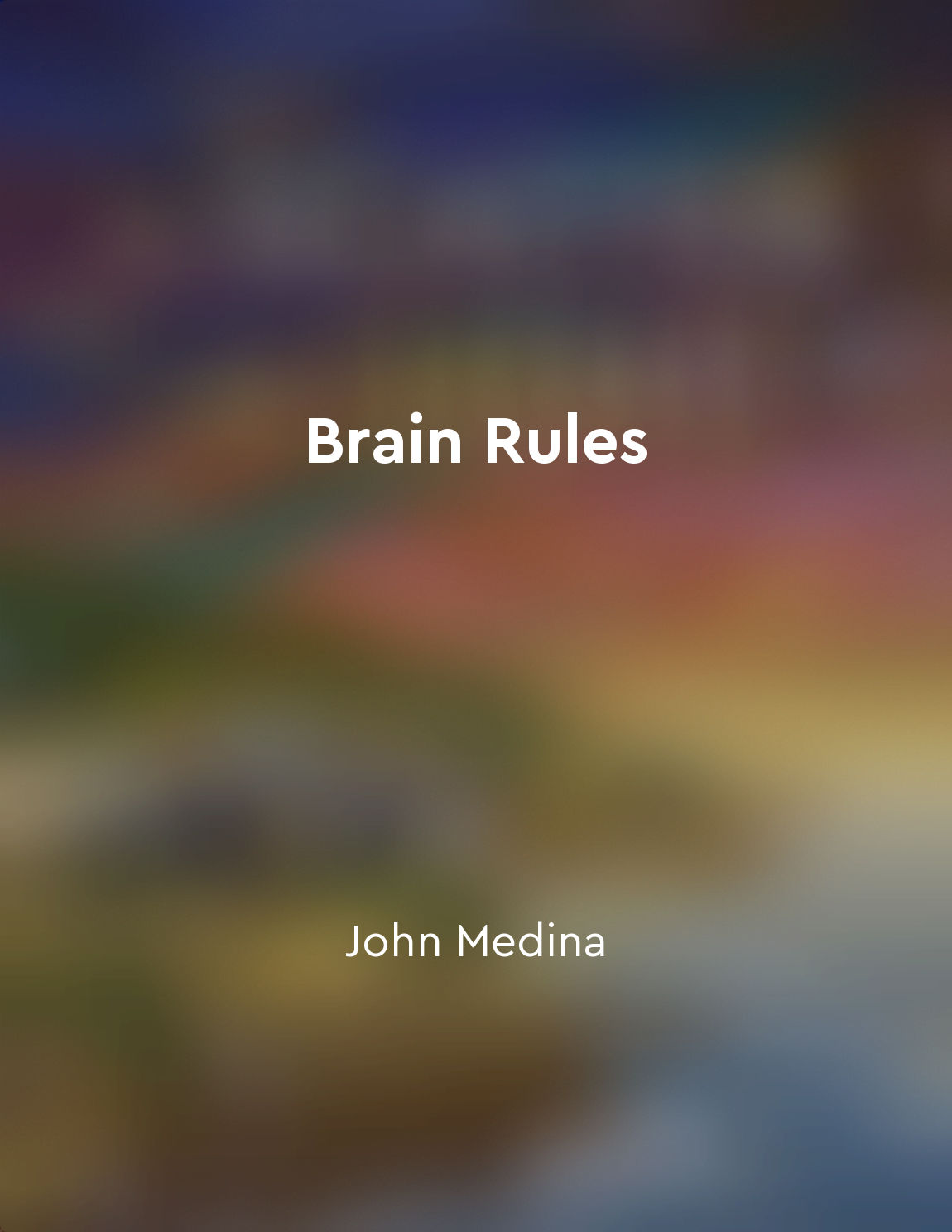Stress damages the brain from "summary" of Brain Rules by John Medina
When we experience stress, our brain releases cortisol, a hormone that helps us respond to difficult situations. Cortisol is useful in the short term, but when stress becomes chronic, it can have damaging effects on the brain. High levels of cortisol can disrupt the way our brain functions, impairing our ability to think clearly, make decisions, and remember information. Chronic stress can also shrink the prefrontal cortex, the part of our brain responsible for decision-making and self-control. This can make us more impulsive and less able to regulate our emotions, leading to mood swings and increased anxiety. Additionally, stress can damage the hippocampus, a region of the brain crucial for memory formation. When the hippocampus is impaired, we may have trouble learning new information and recalling past events. In addition to these cognitive effects, chronic stress can also impact our physical health. It can weaken our immune system, making us more susceptible to illnesses and infections. Stress can also contribute to the development of mental health disorders such as depression and anxiety. Furthermore, research has shown that high levels of cortisol in the brain can accelerate the aging process, leading to cognitive decline and an increased risk of neurodegenerative diseases like Alzheimer's. To protect our brain from the damaging effects of stress, it is essential to find healthy ways to manage and cope with difficult situations. This may include practicing relaxation techniques, exercising regularly, getting enough sleep, and seeking support from friends, family, or a mental health professional. By taking care of our mental and emotional well-being, we can safeguard our brain health and maintain optimal cognitive function.Similar Posts
Polyphasic sleep patterns for increased productivity
Polyphasic sleep patterns are a fascinating method to reclaim time that would otherwise be lost to sleep. The idea is simple: i...
Build a support network to reduce stress
One effective way to manage stress is to cultivate a support network. This network can consist of friends, family members, coll...
Taking breaks replenishes selfcontrol
When you're trying to control your behavior and resist temptation, your brain becomes fatigued. This mental exhaustion leads to...
Strive for balance in all aspects of life
Achieving balance in all aspects of life is crucial for overall well-being. This means finding a harmonious equilibrium between...

Cultivating a growth mindset can enhance emotional intelligence
Cultivating a growth mindset involves actively seeking out challenges, seeing setbacks as opportunities for learning, and belie...
Developing emotional intelligence takes time and practice
Developing emotional intelligence is a process that requires dedication and effort over an extended period of time. It is not s...

Sugar consumption disrupts hormone balance
Excessive sugar consumption wreaks havoc on your hormonal balance. When you consume high amounts of sugar, your body's insulin ...

Positive mindset and belief in memory capabilities boost performance
Believing in your memory's capabilities is crucial for enhancing your performance. When you have a positive mindset about your ...
Embracing vulnerability can lead to breakthroughs in learning
Embracing vulnerability is a powerful concept that can open the doors to breakthroughs in learning. When we allow ourselves to ...

Individual brain patterns can be modified
The idea that individual brain patterns can be modified is a revolutionary concept that has the power to change the way we view...

